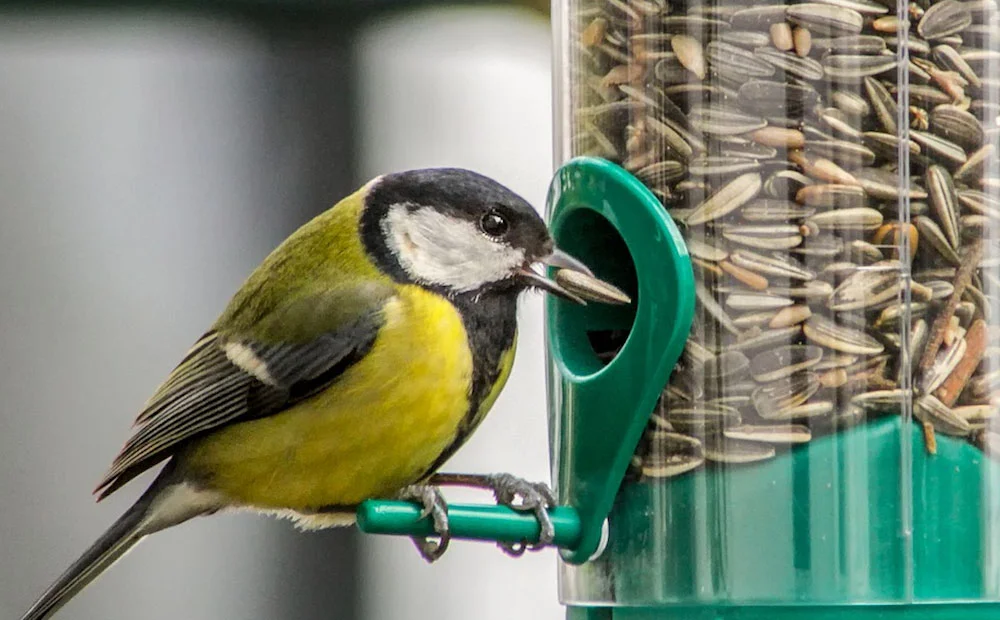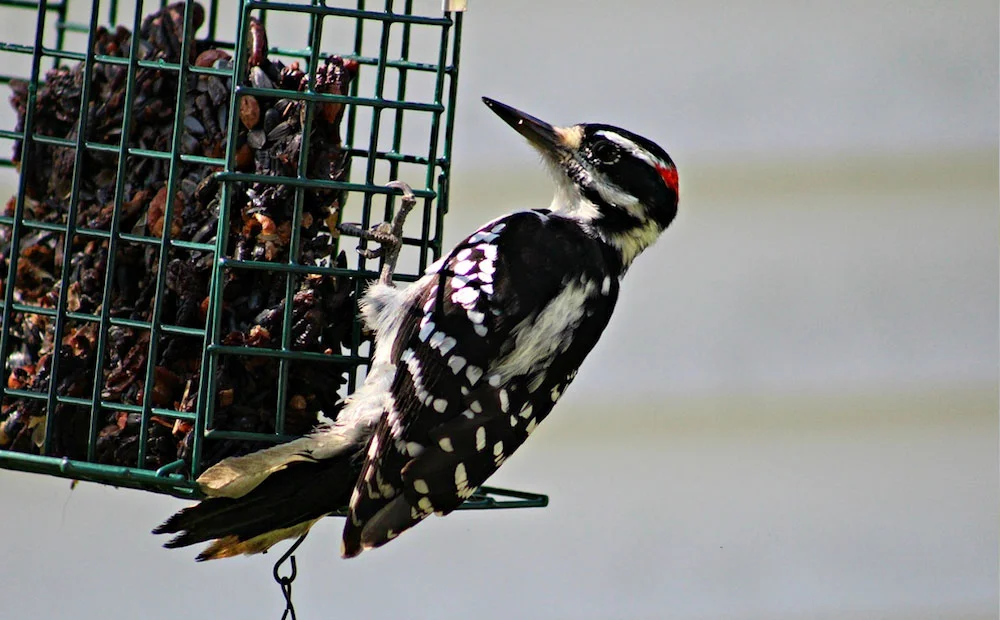FEEDING THE BIRDS
Is there anything more picturesque than an afternoon at the park, or tea on the patio while feeding the wild birds? It’s easy, fun, kids love it, and our feathered friends certainly appreciate the gesture. But one thing’s for certain: birds have a very selective diet, and while they may be quick to snatch up scraps of “people food” when it gets tossed out into the yard, that doesn’t mean it’s good for them. Here are few more friendly breadcrumb alternatives to consider:
BLACK OIL SUNFLOWER SEED
These seeds are a real favorite for all sorts of different backyard birds, like cardinals, mourning doves and bushtits. As the name suggests, they are oilier than many other seeds, and that means more nutrition packed into each tiny morsel. The shells are also nice and thin, so it’s easy for smaller birds to crack them open and pick out the good stuff.
STRIPED SUNFLOWER SEED
These seeds are enjoyed by birds and humans alike (though we definitely don’t recommend sharing your flavored seeds with the birds). A bag of plain old striped sunflower seeds will attract so many lovely songbirds like chickadees, blue jays and nuthatches, but because the shells are thick and tougher to crack, they aren’t great for tiny birds with little beaks.
SAFFLOWER SEED
For a long time these little white seeds weren’t widely recognized for being a good birdseed option, but lately they’ve been becoming a birdfeeder staple due to their high nutritional content. They’re loaded with protein, fiber, and fat, so that means a well-balanced breakfast for the birds. Grosbeaks, finches, woodpeckers, and many others will flock towards a feeder filled with safflower seed.
PEANUT PICKOUTS
Save the birds the trouble of de-shelling their nuts and provide them with some peanut pickouts. These are wildly popular among many kinds of birds, but as we all know, they’re also a favorite amongst squirrels. To ensure that the squirrels aren’t stealing all the nuts and storing them for winter, pick up a squirrel-proof feeder.
SHELLED PEANUTS
Watching and listening to birds cracking their way into peanuts can be pretty entertaining, so these are a worthy option, as well. Again, they’re bound to get snatched up by squirrels if not kept in a special bird feeder designed to keep them at bay, so pick out a feeder that’s designed for shelled nuts.
NYJER
Also known as thistle seed, even though they aren’t related to the thistle, these skinny black seeds are sure to attract the smallest backyard birds. Finches, sparrows, doves, and several other “clinger” birds that balance off the sides of feeders are known for their love of nyjer, so place them in a feeder that’s designed for birds who prefer to clutch the edge of their feeding station.
SUET
These blocks of feed made from a mix of seed and fat are fantastic option to put out in the winter. You can purchase special cage containers that hold the brick in place, and easily fasten them onto the sides of trees. The extra helping of fat in suet is nutritionally advantageous for birds in the winter when food isn’t always as easy to source. One important thing to keep in mind is that suet can attract some other hungry animals, such as raccoons, skunks, and even bears, so if you live in an area that these are known to frequent, maybe hold off on placing suet around your home.
CRACKED CORN
This is a fantastic choice for many reasons: it’s affordable, it’s broken down into easy-to-chew chunks for all sizes of birds, and there’s no shells or waste left behind. Since cracked corn is dehydrated, it has a long shelf life, too, so feel free to buy it in bulk. Blackbirds, juncos, bobwhites, junglefowl, and many more will come from far and wide to get a piece of this tasty treat.
WHOLE CORN
These bigger kernels of corn are popular amongst large birds like pheasants and turkeys, but are also great for feeding ducks at the park. However, an important thing to consider when feeding corn to birds is that corn can become spoiled quite easily if exposed to moisture. The result is a buildup of aflatoxins, which are incredibly harmful to birds even at relatively low concentrations. To avoid this, don’t put out corn in humid weather, and place it in a shallow dish that isn’t likely to collect water.
SPECIALTY MIXES
The great thing about specialty blends of bird feed is that they not only provide birds with a variety of nutritious seeds and nuts to keep them happy and well-fed, but you can also purchase special blends specifically formulated to attract the kinds of birds you’d like to pay a visit to your yard. Whether you’re hoping to attract cardinals, finches, woodpeckers, sparrows, or a host of other lovely songbirds, there’s a specialty seed mix out there that will act as an open invite for your favorite birds.
Stop by our garden center today and grab a mix of different seeds, and a nice new feeder to fill your yard with gorgeous birds of all colors and sizes, while filling their bellies at the same time. They’ll thank you for the gesture with their lovely melodies and tweets of appreciation.






